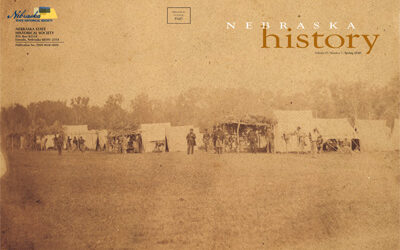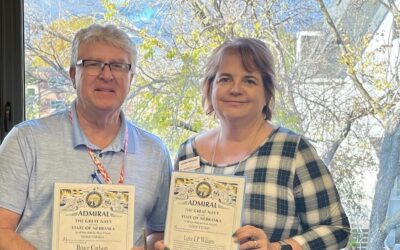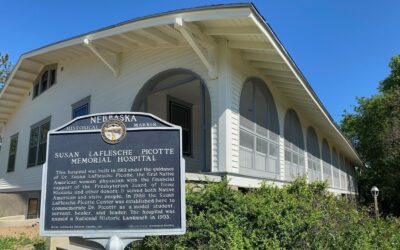Nebraska railroads were much concerned with developing an adequate economy in the areas they served. The Burlington had a long history of promoting the welfare of its farm customers, and after the sharp depression of 1920-22 had ended, it worked to revive freight traffic in its western territories, sponsoring promotional trains to disseminate agricultural information to farmers.
The Burlington and other railroads had experimented with such promotional trains before World War I. Seed corn gospel trains in 1904 and 1912, and alfalfa specials in 1904 and 1913, demonstrated that such an approach was practical. The Burlington went on to sponsor a number of livestock, poultry, and dairy trains in the 1920s.
In Nebraska in 1924 the Burlington focused on dairying with the Nebraska Purebred Dairy Sires Special. The railroad had aggressively pushed dairy development in Nebraska for more than a decade, hoping to establish processing and cheese-making plants in the state. The upgrading of stock, the keeping of milk records for individual cows, and other devices to improve the efficiency of dairying operations were encouraged.
The Dairy Sires Special consisted of twelve cars: three for livestock; two for dairy exhibits; two for feed and equipment; one for demonstrations; and one for accommodations for personnel accompanying the train. Val Kuska, Burlington agricultural agent, estimated that 135,000 persons, about ten percent of the state’s population in 1924, saw demonstrations or heard lectures.
The Burlington chose men in the communities visited to receive purebred bulls in exchange for scrub bulls. The farmer agreed to give his purebred bull proper care, use it for breeding purposes, and to show the animal to a formal inspection party a year later. Follow-up tours in 1925, 1926, and 1931 showed the positive results of the 1924 trip.
The Burlington also sponsored a Profitable Pork Special in 1929 that sought to encourage the Nebraska pork industry. Newspaperman Will M. Maupin, who traveled with the train and reported its progress and success, noted October 10, 1929, in the Hastings Democrat, “Not every farmer and his household can visit the Agricultural College at Lincoln, so the railroads join with the Agricultural College authorities in taking the college to the farmers. . . . This Burlington special is doing a splendid work. It is making the raising of hogs a profession. Not more hogs but better hogs raised at less expense. No matter how much you know about hogs now, you will know more after a careful inspection of the Burlington’s ‘Profitable Pork Special.’



